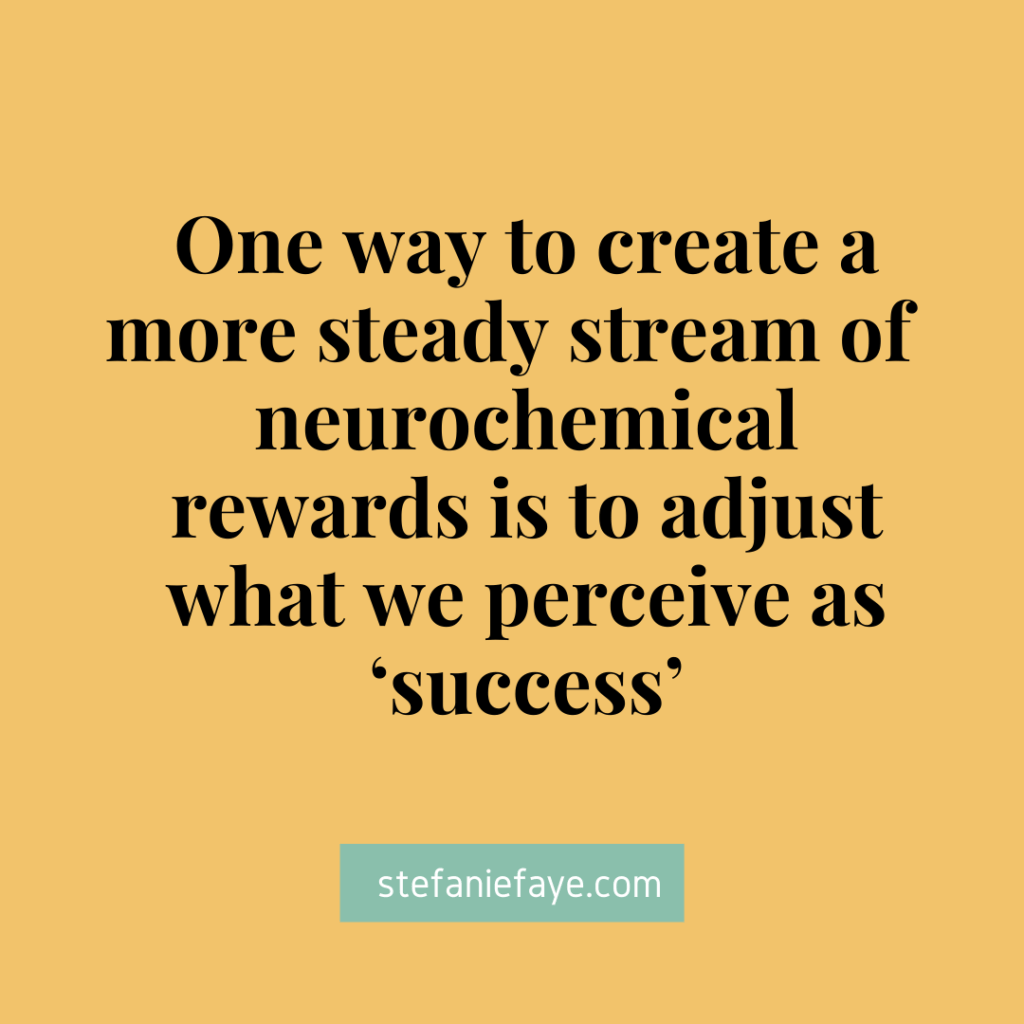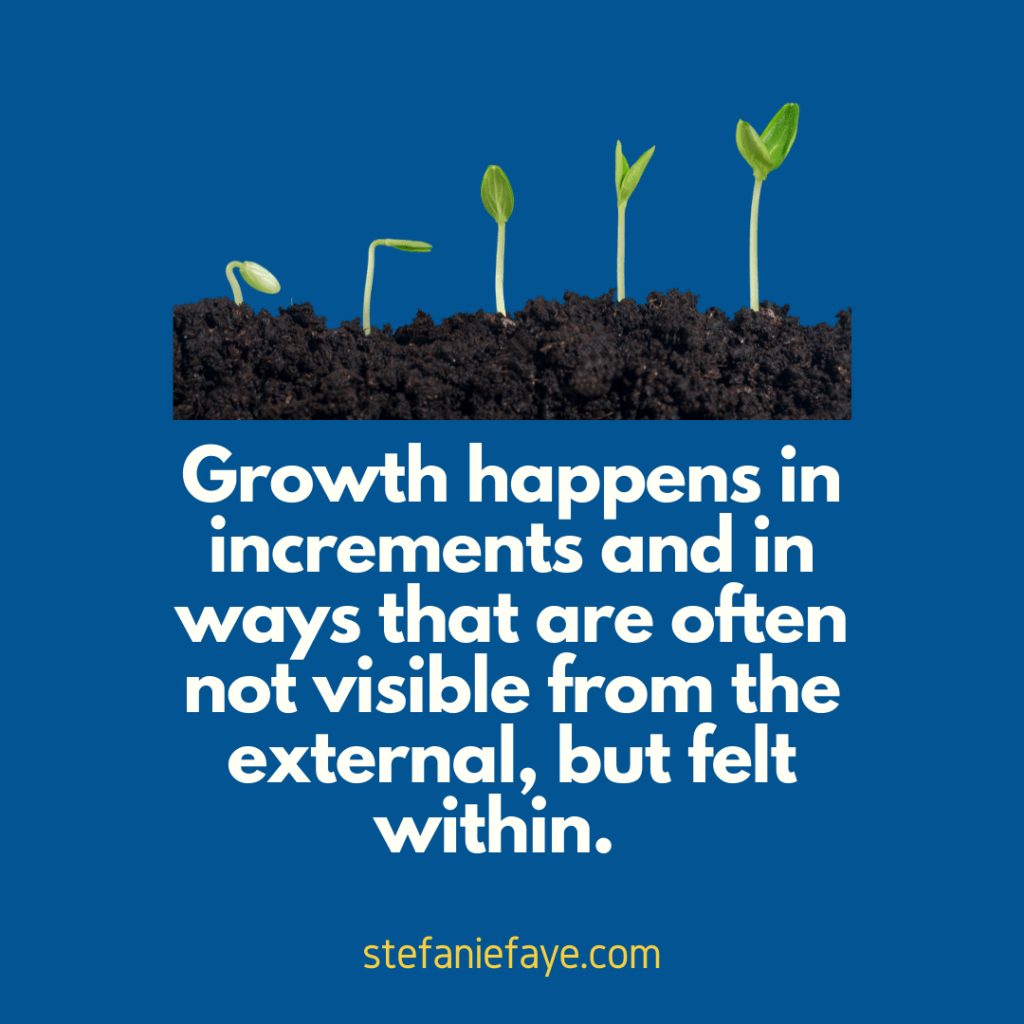
We need reward hormones to keep going towards our goals.
Achieving our goals is related to reward hormones such as dopamine. Neurochemical states give us a visceral feeling of being on the right track towards what we want. It fuels us to keep going.
So the more we can create ‘hits’ of these rewards, the more likely we are to keep doing behaviors that progress us towards our desired states.
One way to create a more steady stream of these neurochemical rewards is to adjust what we perceive as ‘success’
For example, when it comes to creating my blog or podcast - i have an end goal in mind of posting something on a weekly basis. But i create multiple check-ins for a sense of reward about my ‘micro-progress’ - things that may not be visible to anyone else, but are things i perceive as small victories:
- Getting my laptop out instead of doing something else
- Coming up with just the first sentence to an article and writing it down
- Allowing my fingers to type even if i don't have clarity about everything i’m going to say
- Eating foods that i know help me stay clear-minded instead of groggy
- Engaging in self-care rituals before bed - which i know help me sleep and which then helps me get up in the morning
- Having my ‘library’ around me of books or research papers I know spark my imagination about the power of the human mind

Growth happens in increments and in ways that are often not visible from the external, but felt within.
What is something you are working towards? Is it still in its early stages, with potential contained in its seed state?
What are some tangible and intangible points that you can start to acknowledge that could give you a sense of progress, even if it’s microscopic and even if no one else can see it but you?
We can also notice intangibles. For example, we can notice our ability to stay present a few moments longer than usual, or our ability to extract information from a mistake or wrong turn. When we do this, we increase the number of opportunities we have to get the hit of dopamine that will fuel us to keep going. This is something I notice in many people who are exemplars of perseverance. They find ways to extract wisdom even from failures or setbacks.
If our sense of success comes from a very specific outcome that will only occur after all the various phases of time, effort and energy are expended, then the only chance we have for that neurochemical reward is at the ‘finish line’ so to speak. That means we won’t get hits of it along the way, which can mean we are more likely to give up.




